Greenpeace International response to OPEC+ oil output decision amid war on Iran and disruption in the Strait of Hormuz
Greenpeace International
Commenting on today’s OPEC+ decision to increase oil production by 206,000 barrels per day from April in response to the escalation of conflict in Middle East including the disruption of oil and gas supply in the Strait of Hormuz, Greenpeace International Executive Director Mads Christensen said: “Today’s OPEC meeting makes one thing clear: as long as our world runs on oil and gas, our peace, security and our pockets will always be at the mercy of geopolitics. Increasing output may temporarily ease price pressures, but it does not address the structural vulnerability at the heart of this recurring crisis: the world’s continued dependence on fossil fuels. “Political leaders in all countries must wake up and reclaim the moral compass. This means pursuing peaceful, diplomatic solutions, and securing access to affordable, sustainable energy to replace the volatility of the fossil fuel–driven world order. Renewable energy enables local energy production and is not hostage to geopolitical conflict. “The escalating violence in the Middle East is a human tragedy. Once again, people are bearing the brunt of Donald Trump’s violence and blatant attacks on the international rule of law. Greenpeace calls for an immediate ceasefire, for international law to be upheld and a return to diplomacy to stop the suffering of civilians.” ENDS Contact: (249 mots)
Greenpeace International Press Desk, +31 (0)20 718 2470 (available 24 hours), pressdesk.int@greenpeace.org
Greenpeace response to strikes on Iran by the US and Israel
Greenpeace International
Greenpeace International is deeply concerned by the joint military strike on Iran by the US and Israel. “We express deep sympathy for all those affected by the violence, wherever they live, and urge that every effort be made to protect civilians, homes, and critical infrastructure,” says Mads Christensen, Executive Director, Greenpeace International. “Military strikes inflict yet more harm on the people of Iran, who have already endured a brutal crackdown in which thousands of protesters and bystanders have been killed, with many more still feared dead. “Such action will not bring stability or security, it risks deepening suffering, fuelling retaliation, and destabilising an already fragile region. “The strike on Iran today raises serious concerns under international law and further undermines critical international legal frameworks designed to prevent war and protect human life. “All parties must immediately halt further military action and return to structured, good-faith negotiations under credible international oversight. “At this critical time, the rights, safety and dignity of the Iranian people must come first. Civilians should never pay the price for political tension, competing resource interests, or geopolitical power struggles. The people of Iran, like people everywhere, have the right to live free of violence, fear and coercion and to determine their own future. “The international community must act urgently to prevent further escalation, prioritise diplomacy and ensure accountability for actions that contravene international law and put civilian lives, ecosystems and the global climate at further risk. “War brings immediate human suffering but also long-term environmental harm. Military conflict contaminates land and water, destroys ecosystems, accelerates climate breakdown, and leaves lasting scars on communities for generations. At a time when the world must urgently unite to confront the climate crisis, further militarisation moves us in the wrong direction. “Greenpeace calls on all parties to de-escalate tensions and pursue peaceful, diplomatic solutions.” Contacts: Greenpeace International Press Desk, +31 (0)20 718 2470 (available 24 hours), pressdesk.int@greenpeace.org (342 mots)
ENDS
What a US$ 345 million judgment means for Greenpeace
Gaby Flores
A US court has just sided with fossil fuel pipeline giant Energy Transfer and ordered Greenpeace International and Greenpeace entities in the US to pay US$ 345 million. Quick backstory: last year, a Morton County jury of nine reached a verdict in Energy Transfer’s abusive intimidation lawsuit against Greenpeace entities in the US (Greenpeace Inc, Greenpeace Fund), and Greenpeace International. The new judgment from the North Dakota court rejects portions of the absurd jury verdict delivered last March but still awards hundreds of millions of dollars to ET without a sound basis in law, failing to solve the injustices of the case. This judgement is the biggest damage award ever imposed on Greenpeace organisations. It’s meant to shut the movement up. So let’s be clear: this type of corporate bullying is designed to rob us of our rights and freedoms. Energy Transfer has pursued this intimidation lawsuit because Greenpeace USA and Greenpeace International dared to show solidarity with Indigenous environmental defenders who oppose the climate-wrecking Dakota Access Pipeline. It was never about justice and Energy Transfer’s SLAPP suit remains a blatant attempt to silence free speech, erase Indigenous leadership of the Standing Rock movement, and punish solidarity with peaceful resistance to the Dakota Access Pipeline. So what comes next? Greenpeace International and Greenpeace organisations in the US will seek a new trial, and if that is denied, appeal the judgment with the North Dakota Supreme Court. At the same time, Greenpeace International has a suit pending against Energy Transfer in the Netherlands under the EU’s anti-SLAPP directive – a landmark test case against corporate bullying. Energy Transfer’s SLAPPs are part of a wave of abusive lawsuits filed by Big Oil companies like Shell, Total, and ENI against Greenpeace entities in recent years but we will continue to resist intimidation tactics. The fight against Energy Transfer’s SLAPP continues — and it is far from over. We will not be silenced. We will only get louder, joining our voices to those of our allies all around the world against the corporate polluters and billionaire oligarchs who prioritise profits over people and the planet. Tell Energy Transfer and other corporate bullies: Stop your attacks on free speech. Texte intégral (1311 mots)
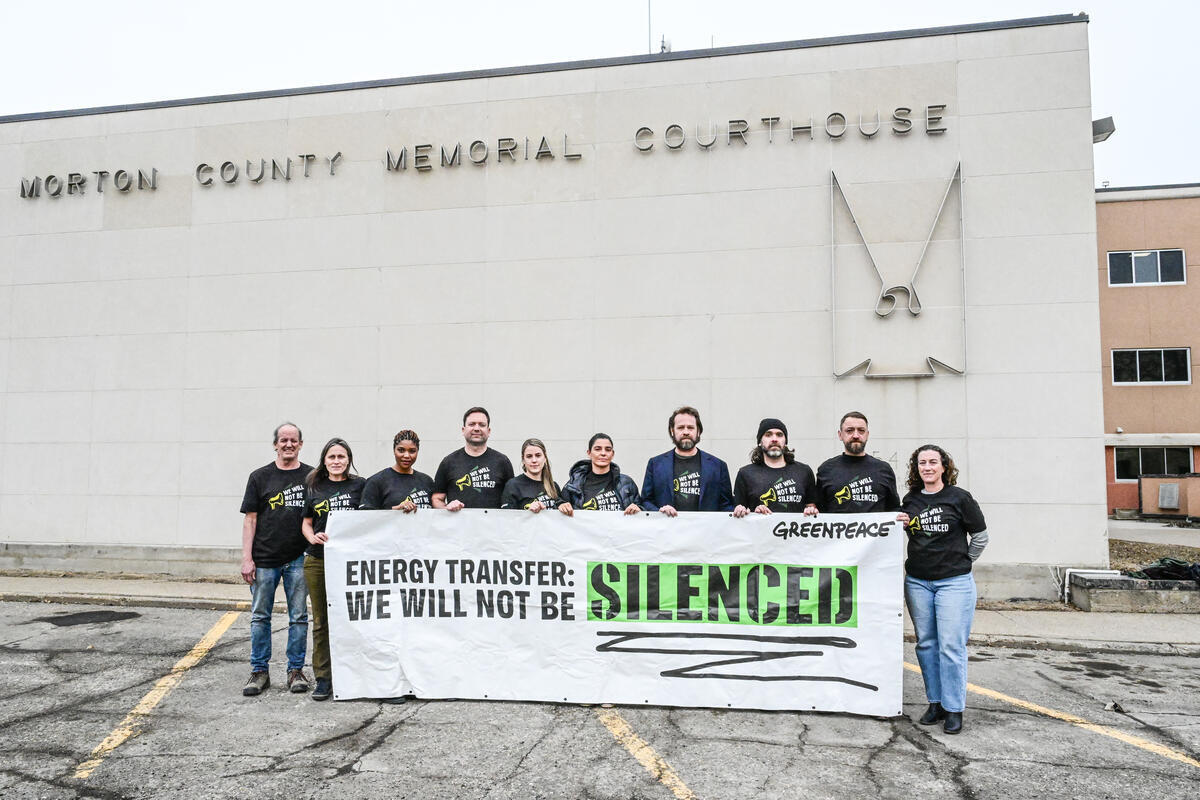
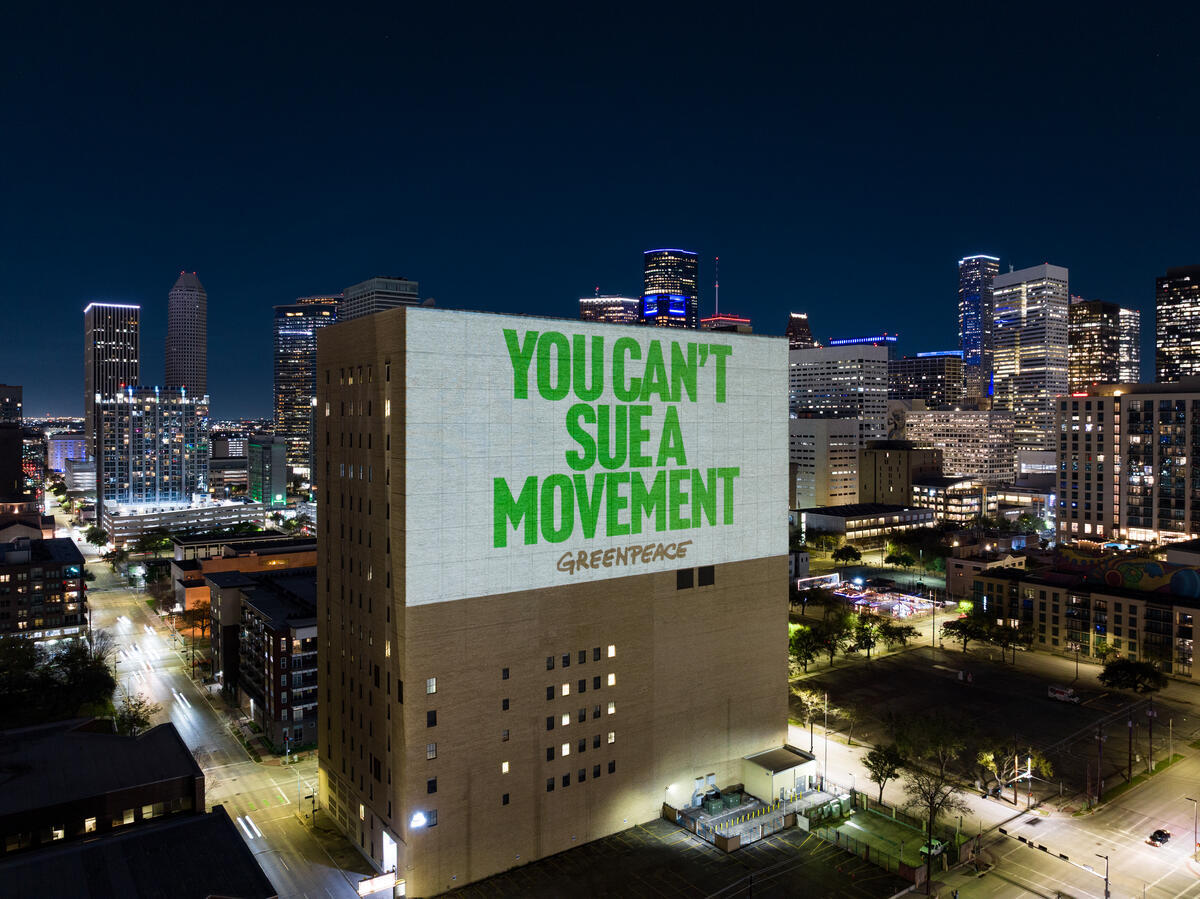
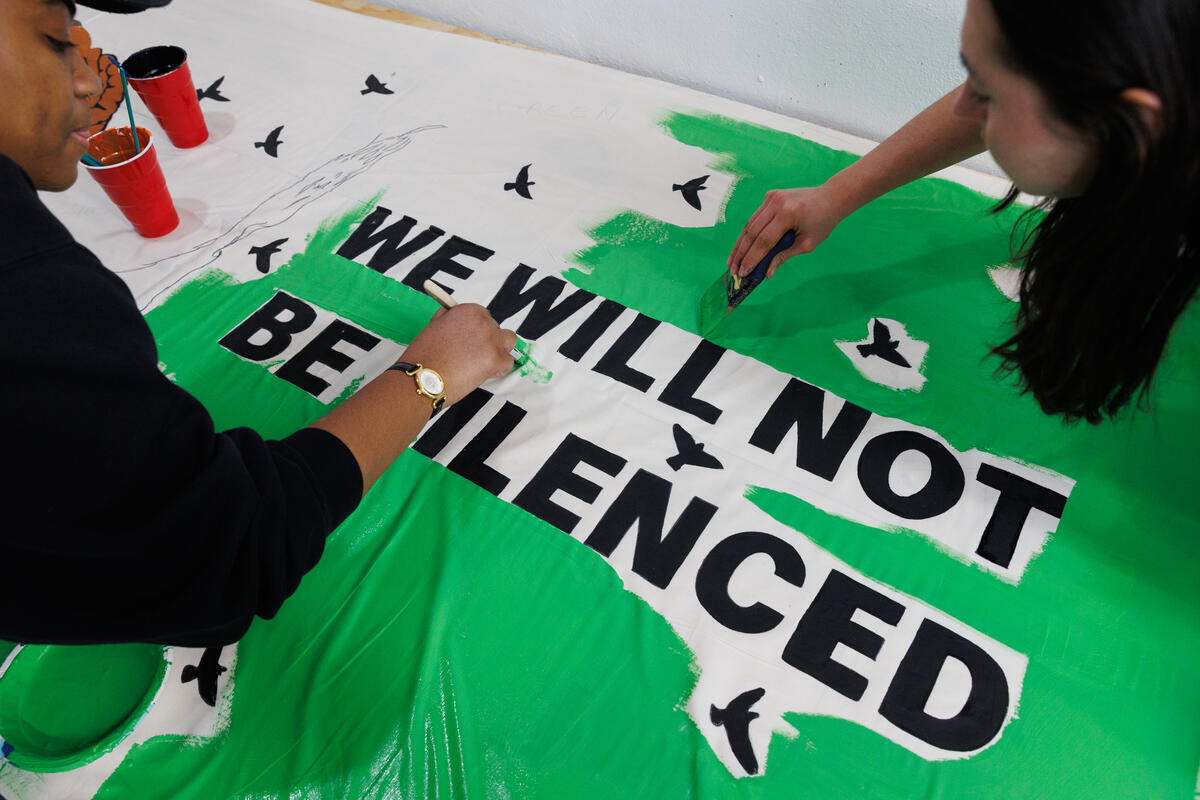
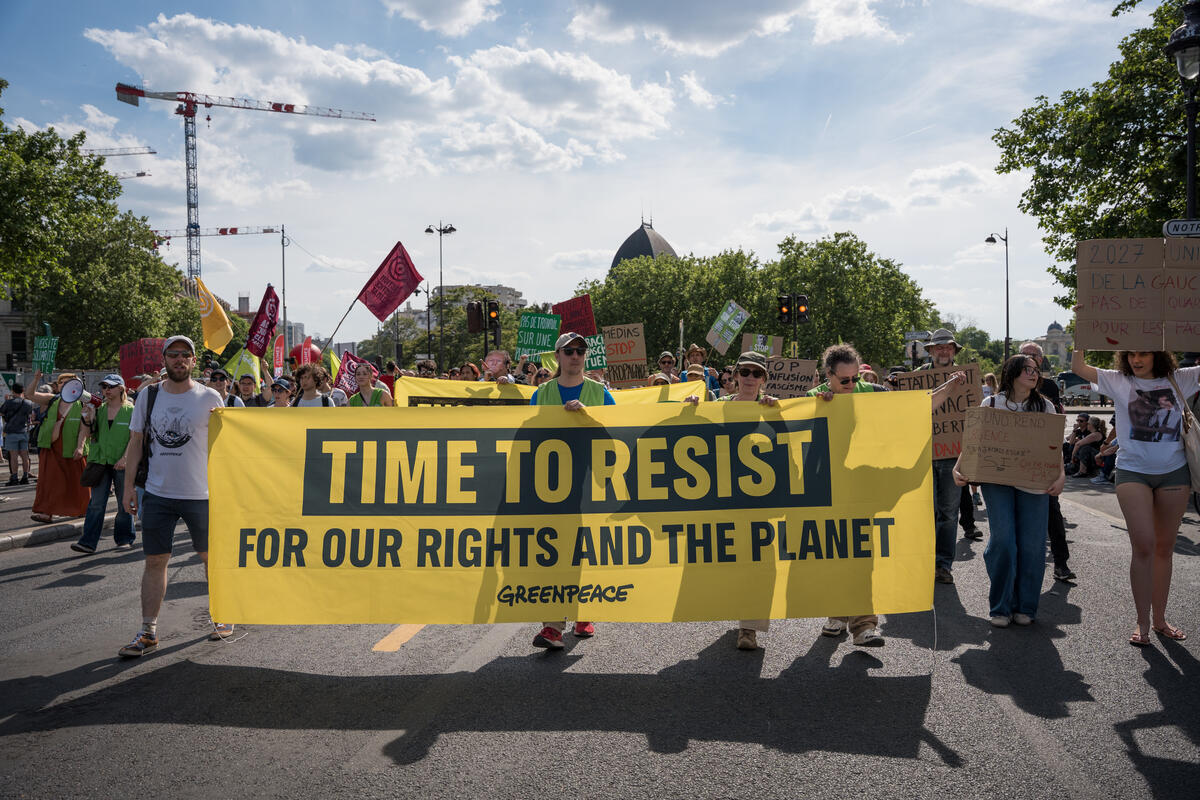
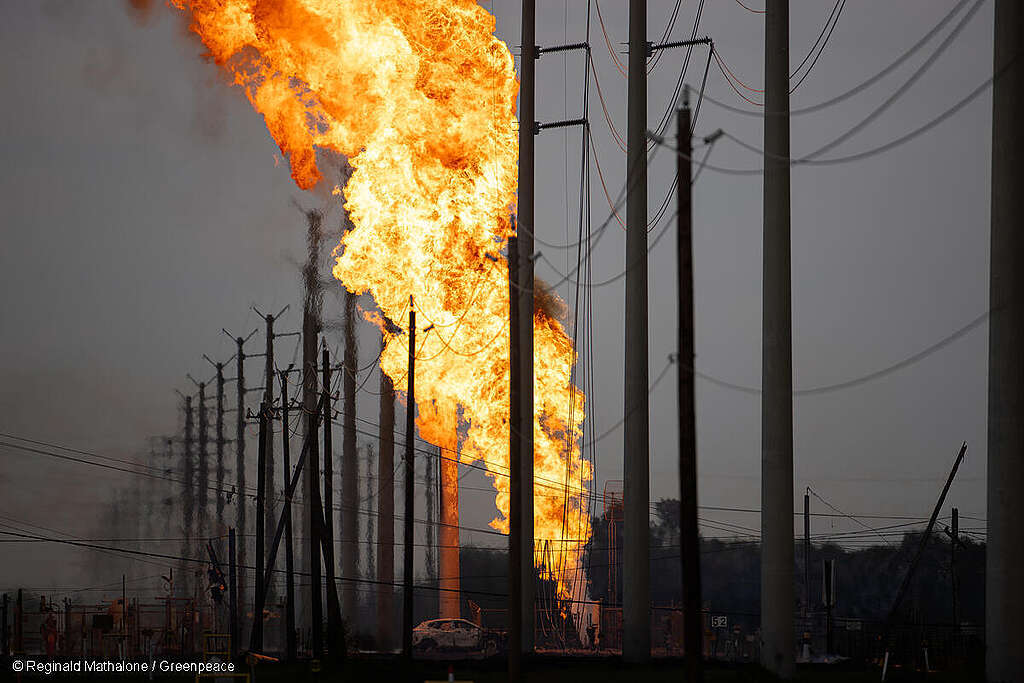
Greenpeace organisations to appeal US$ 345 million North Dakota court judgment in Energy Transfer’s intimidation lawsuit
Greenpeace International
Mads Christensen, Greenpeace International Executive Director said: “Energy Transfer’s attempts to silence us are failing. Greenpeace International will continue to resist intimidation tactics. We will not be silenced. We will only get louder, joining our voices to those of our allies all around the world against the corporate polluters and billionaire oligarchs who prioritise profits over people and the planet. “With hard-won freedoms under threat and the climate crisis accelerating, the stakes of this legal fight couldn’t be higher. Through appeals in the US and Greenpeace International’s groundbreaking anti-SLAPP case in the Netherlands, we are exploring every option to hold Energy Transfer accountable for multiple abusive lawsuits and show all power-hungry bullies that their attacks will only result in a stronger people-powered movement.” The Court’s final judgment today rejects some of the jury verdict delivered in March 2025, but still awards hundreds of millions of dollars to ET without a sound basis in law. The Greenpeace defendants will continue to press their arguments that the US Constitution does not allow liability here, that ET did not present evidence to support its claims, that the Court admitted inflammatory and irrelevant evidence at trial and excluded other evidence supporting the defense, and that the jury pool in Mandan could not be impartial.[1][2] ET’s back-to-back lawsuits against Greenpeace International and the US organisations Greenpeace USA (Greenpeace Inc.) and Greenpeace Fund are clear-cut examples of SLAPPs — lawsuits attempting to bury nonprofits and activists in legal fees, push them towards bankruptcy and ultimately silence dissent.[3] Greenpeace International, which is based in the Netherlands, is pursuing justice in Europe, with a suit against ET under Dutch law and the European Union’s new anti-SLAPP directive, a landmark test of the new legislation which could help set a powerful precedent against corporate bullying.[4] Marco Simons, Interim General Counsel at Greenpeace USA and Greenpeace Fund said: “Speaking out against corporations that cause environmental harm should never be deemed unlawful. It is guaranteed by the US Constitution, and is essential to the protection of communities and the health of democracy. This is a setback, but the movement to defend people and the planet has always faced setbacks and resistance, and Energy Transfer will fail in its goal of silencing its critics. “The absurdity of this judgment can easily be illustrated. These Greenpeace organisations have been held responsible for supposedly delaying a pipeline that to this day does not have legal authority to operate, and which was actually delayed by the decisions of the US Army Corps of Engineers. The judgment includes tens of millions of dollars for signing a letter also signed by 500 other organisations, which echoed statements made in United Nations reports. If the courts still believe in justice, this result will not stand.” Energy Transfer’s SLAPPs are part of a wave of abusive lawsuits filed by Big Oil companies like Shell, Total, and ENI against Greenpeace entities in recent years.[3] A couple of these cases have been successfully stopped in their tracks. This includes Greenpeace France successfully defeating TotalEnergies’ SLAPP on 28 March 2024, and Greenpeace UK and Greenpeace International forcing Shell to back down from its SLAPP on 10 December 2024. ENDS Photos and Videos can be accessed from the Greenpeace Media Library. Notes: [1] The judgment entered by North Dakota District Court Judge Gion follows a jury verdict finding Greenpeace entities liable for more than US$660 million on March 19, 2025. Judge Gion subsequently threw out several items from the jury’s verdict, reducing the total damages to approximately US$345 million. [2] Public statements from the independent Trial Monitoring Committee [3] Energy Transfer’s first lawsuit was filed in federal court in 2017 under the RICO Act – the Racketeer Influenced and Corrupt Organizations Act, a US federal statute designed to prosecute mob activity. The case was dismissed in 2019, with the judge stating the evidence fell “far short” of what was needed to establish a RICO enterprise. The federal court did not decide on Energy Transfer’s claims based on state law, so Energy Transfer promptly filed a new case in a North Dakota state court with these and other state law claims. [4] Greenpeace International sent a Notice of Liability to Energy Transfer on 23 July 2024, informing the pipeline giant of Greenpeace International’s intention to bring an anti-SLAPP lawsuit against the company in a Dutch Court. After Energy Transfer declined to accept liability on multiple occasions (September 2024, December 2024), Greenpeace International initiated the first test of the European Union’s anti-SLAPP Directive on 11 February 2025 by filing a lawsuit in Dutch court against Energy Transfer. The case was officially registered in the docket of the Court of Amsterdam on 2 July, 2025. Greenpeace International seeks to recover all damages and costs it has suffered as a result of Energy Transfers’s back-to-back, abusive lawsuits demanding hundreds of millions of dollars from Greenpeace International and the Greenpeace organisations in the US. The next hearing in the Court of Amsterdam is scheduled for 16 April, 2026. Contacts: Greenpeace International Press Desk, +31 (0)20 718 2470 (available 24 hours), pressdesk.int@greenpeace.org Join the Greenpeace SLAPP Trial WhatsApp Group for our latest updates Texte intégral (1170 mots)
Mandan, North Dakota — Greenpeace International and Greenpeace organisations in the US announce they will seek a new trial and, if necessary, appeal the decision with the North Dakota Supreme Court following a North Dakota District Court judgment today awarding Energy Transfer (ET) $US 345 million. ET’s SLAPP suit remains a blatant attempt to silence free speech, erase Indigenous leadership of the Standing Rock movement, and punish solidarity with peaceful resistance to the Dakota Access Pipeline. Greenpeace International will also continue to seek damages for ET’s bullying lawsuits under EU anti-SLAPP legislation in the Netherlands.
South African community health worker delivers baby during historic flood disaster
Lerato Mutsila and Tamsin Metelerkamp
Birthing babies can become way more complicated in extreme weather, as can managing everyday healthcare and medical emergencies. But such pressures will only increase as fossil-fuelled disasters intensify. Here’s how one South African mother and community care worker handled childbirth in a Red Level 10 storm without access to health facilities – and why governments need to invest in climate-resilient infrastructure and make polluters pay for the mounting cost of their climate impacts. Cut off by floodwaters and without access to a clinic, a South African home-based carer was forced into an extraordinary role when a young woman went into labour during recent floods. In Mbaula village, amid destruction and isolation, an impromptu baby delivery became a symbol of hope and solidarity in a community left on the margins of healthcare. On Wednesday 14 January, floods caused by a low-pressure system that began in Mozambique, but quickly moved into the neighbouring South African provinces of Mpumalanga and Limpopo, caused immense destruction. Homes were gutted, roads washed away and more than 30 lives were reportedly lost. In neighbouring countries, the reported death toll went into the hundreds and nearly a million people were displaced. At the heart of the areas most affected by the floods was Mbaula, a village in Giyani, Limpopo province.Daily Maverick had reported about homes and lives that lay in ruin in the aftermath of the extreme weather event, but in the words of Mbaula resident Maggie Sethagane, it was also the day “God performed a miracle”. It was on this day, as the Mbaula River swelled and flooded part of the village, that she (with no medical equipment or access to healthcare services) helped a young mother bring new life into the village. Sethagane has been working as a home-based carer since 2001. In her role as a community health worker, she takes care of the sick, visiting them in their homes, explaining treatment and assisting them to take their medication correctly. But on the first day of the floods, she found herself taking on another role – midwife. Late that evening, Evidence Ramoshaba, a pregnant mother experiencing contractions, came to Sethagane’s door asking for help to reach the local clinic as she was in pain. Villages like Mbaula do not have their own clinic, forcing residents to travel long distances for care. A mobile clinic visits the area once a month, along with an ambulance. However, it is difficult to get an ambulance out to the village at times, even in better weather conditions. The nearest health facility, Makhuva Clinic, was in a neighbouring village, which could only be reached by roads that had been blocked by rapidly swelling rivers. “I told her, ‘It is impossible for me to take you to the clinic because there is no road. It has rained a lot. And even if we used the road through Phalaubeni… to get to Makhuva clinic, there is a river ahead. We won’t be able to pass,’ ” Sethagane recounted. With no other option, Sethagane advised Ramoshaba to return home and wait with her sister-in-law until it was time for the birth. A few hours later, when the mother’s family told Sethagane that the situation was becoming dire, the home-based carer came across to assist. She had no equipment, not even gloves, as the clinic issues these to community health workers on an as-needed basis. “I told her, ‘Push, push, push, there is no other way’. She pushed, and the child came out. At that point, we didn’t have a razor blade [to cut the umbilical cord], we didn’t have anything. We didn’t know what we were going to do,” said Sethagane. She told Ramoshaba to sleep, with the baby in her arms, until they could figure out what to do. It was only the following morning that Sethagane, along with Ramoshaba’s mother, was able to organise a razor and purchase wool from the local seamstresses, who sewed xibelani, traditional Xitsoga skirts. Using those two everyday household items, Sethagane was able to cut the umbilical cord and discard the placenta. “We took a risk, but there was nothing else we could have done,” said Sethagane. “The child was born on Thursday, 16 January… The child only went to the clinic when she was three days old on the 19th because … the roads were not alright. You could not use them. It was basically on Monday that I took [Ramoshaba] to the clinic when I was going to work. That’s when they checked her to make sure she was alright, and the baby as well.” The baby girl, Kutshemba, which means “hope” or “believe in” in Xitsonga, was found to be healthy despite the unusual circumstances of her birth. “This child was born on the day of the disaster. She came on a very hard day, a day with problems… God performed a miracle by making sure this child was born okay, even though she wasn’t born in a clinic,” said Sethagane. Cradling a sleeping Kutshemba in her arms, a quietly-spoken Ramoshaba told us that she chose to give her child that name because the manner in which she was born held no promise that the baby would survive. “It was 10pm or 10.30pm, and the rain was falling hard. It was raining so hard… there was no way we could leave the village. There was water everywhere, and the bridge to Makhuva was blocked. There was nowhere to go, but we did try our best; that’s how the baby was born at home,” she said, motioning to the house. Ramoshaba said she had lower back and abdominal pain for three days with no access to medication before she could seek medical attention at Makhuva Clinic. As storms, floods, fires, and droughts are hitting us more frequently and with greater intensity around the world, the costs of the climate crisis are going up significantly. Countries in the Global South not only bear the brunt of the climate crisis due to increased frequency and severity of extreme weather events, but must do so with what’s left after centuries of colonial looting. Communities already battling to expand public infrastructure (like clinics and hospitals) must now rebuild what is destroyed during weather disasters. Bold taxes or fines on oil and gas corporations would help to raise vital revenues which should be used to ensure that communities are given the support they need to recover, rebuild and invest in climate solutions. After all, the fossil fuels industry is single-handedly the biggest driver of climate impacts. Hopefully these taxes will also serve as a deterrent to their climate-wrecking polluting activities, and actually curb the climate impacts. Lerato Mutsila and Tamsin Metelerkamp are Daily Maverick journalists based in South Africa. A version of this article was originally published by Daily Maverick Earth on 8 February 2026. Guest authors work with Greenpeace to share their personal experiences and perspectives and are responsible for their own content. Sign the pact, record your story. Join the global movement to make polluters pay. Texte intégral (2222 mots)
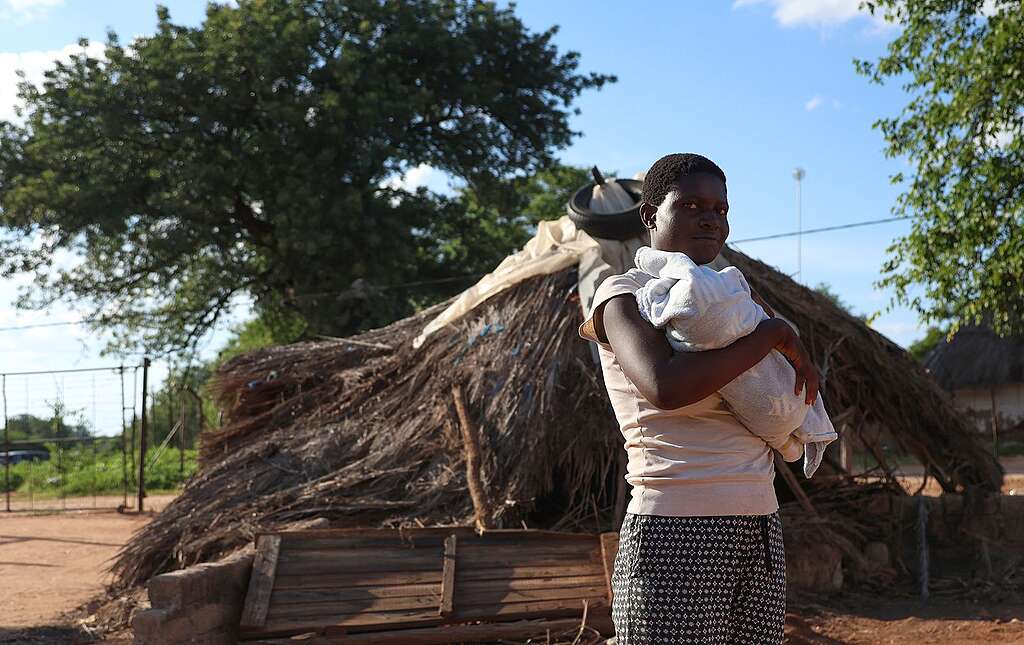
Health facilities are hard to access even in better weather. Extreme conditions make it impossible
‘Hope’ despite the storm
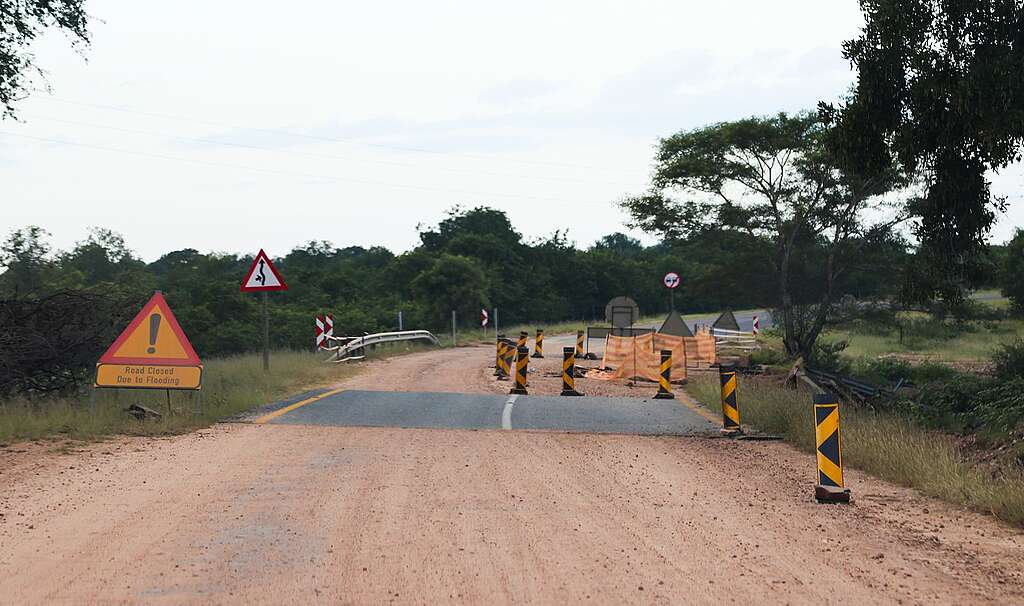
Editor’s note: Make polluters pay
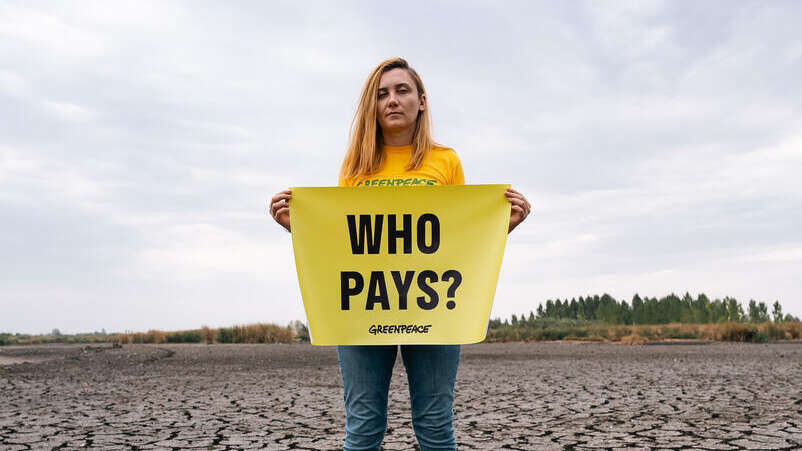
Floods, weather extremes and community resilience in Limpopo, South Africa
Lerato Mutsila
In Limpopo, South Africa, devastating floods expose the destructive power of extreme weather supercharged by a fossil fuelled climate crisis. Yet community resilience shines through as neighbours unite to rebuild and adapt amid climate extremes. A low-pressure system that began in Mozambique gutted homes, washed away roads, and took more than 30 lives. In neighbouring countries, the death toll went into the hundreds and nearly a million people were displaced. I have always known about rivers, dams, rainfall patterns and the quiet, persistent ways water shapes our landscapes. These are things we engage with daily, so I understood water’s nature – its necessity, its patience and its destructive potential. On paper, floods are statistics: millimetres of rain, breached river levels, damaged infrastructure. But it was only when Daily Maverick’s children’s reporter, Tamsin Metelerkamp, photojournalist Felix Dlangamandla and I walked through Mbaula Village beside the now-quiet Mbaula River, one of the hardest-hit areas in Limpopo that the true power of water fully dawned on us. We walked through homes split open like cardboard boxes, fields once promising maize harvests smothered in mud and debris. We traced the more than 1km path along which one survivor had been swept. People described the water arriving with a roar; not a rise, but a wall that gave no warning, offered no mercy and left nightmares behind. People described the water arriving with a roar; not a rise, but a wall that gave no warning. In those moments, it became clear: water does not negotiate. When it overwhelms, it takes everything in its path. Yet amid the wreckage, another kind of power revealed itself. On the ground, we heard stories of neighbours pulling one another from the mud and sharing food, clothes and shelter with those who lost everything. Community leaders organised clean-ups before any official help arrived. Elders offered comfort, faith leaders led prayers and young people cleared debris with their bare hands. Loss was everywhere, but so was solidarity. The floods reminded us that while water can destroy villages, it cannot wash away human connection. In crisis, people did more than survive; they began to imagine how to build back safer and better. These floods are not isolated. They are part of a pattern we can no longer ignore. South Africa has endured devastating floods and prolonged droughts followed by sudden deluges and intensifying heatwaves. Globally, flooding, fires and storms continue to rewrite climate records. The science is clear: a warming world brings greater extremes – and communities already made vulnerable to the impacts of extreme weather are paying the highest price. What Limpopo demands now is not sympathy, but action. Climate adaptation must mean early warning systems that reach rural villages, land-use planning that respects floodplains, resilient housing, protected ecosystems and disaster responses that are swift, coordinated and humane. The water has receded, but the questions it leaves behind are rising. How we answer them will shape our shared future. Lerato Mutsila is a Daily Maverick journalist based in South Africa. A version of this article was originally published by Daily Maverick Earth. Guest authors work with Greenpeace to share their personal experiences and perspectives and are responsible for their own content. Sign the pact, record your story. Join the global movement to make polluters pay. Texte intégral (1564 mots)
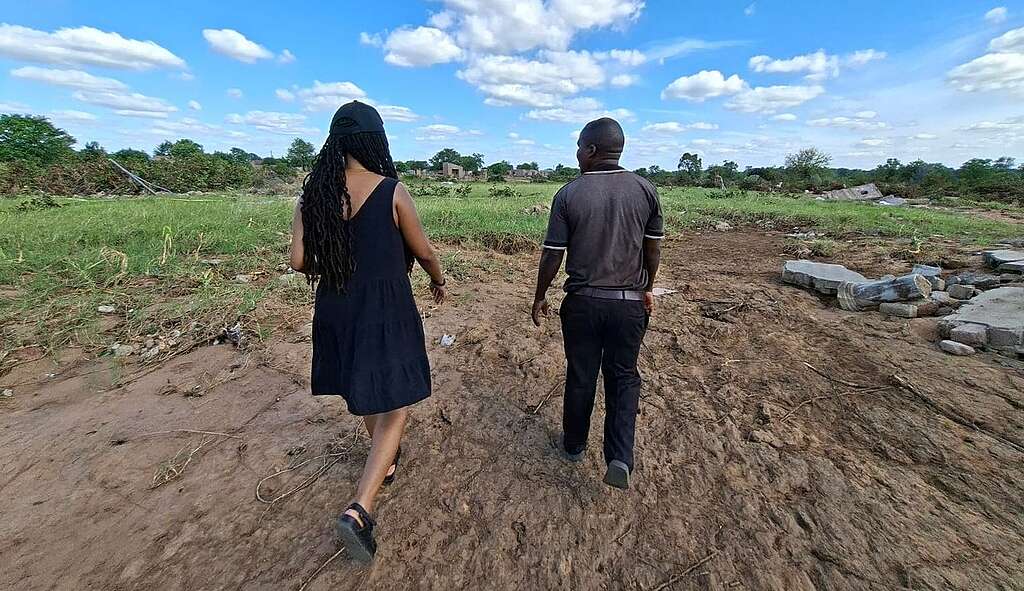
No warning, just devastation
Part of a global crisis

Developing countries on deep sea mining front line stand to gain almost nothing if mining goes ahead – new independent analysis
Greenpeace International
Amsterdam, Netherlands — Mechanisms proposed by the International Seabed Authority (ISA) for sharing any future revenues from deep sea mining fundamentally fail to demonstrate equitable distribution, calling into question one of the fundamental premises on which attempts to justify mining are based, new analysis shows.[1] The research by legal professor Dr Harvey Mpoto Bombaka and development economist Dr Ben Tippet, reveals that proposals currently under consideration would leave developing nations with meagre, token payments from deep sea mining. This configuration is in contrast to the clear United Nations Convention on the Law of the Sea (UNCLOS) mandate that mining must only be carried out for the benefit of humankind as a whole.[2] The real beneficiaries, the research shows, would be yet again a handful of corporations in the Global North. Dr Harvey Mpoto Bombaka, Report Author, Centro Universitário de Brasília said: “What’s described as global benefit-sharing based on equity and intergenerational justice increasingly looks like a framework for managing scarcity that would deliver almost no real benefits to anyone other than the deep sea mining industry. The structural limitations of the proposed mechanism would offer little more than symbolic returns to the rest of the world, particularly developing countries lacking technological and financial capacity.” The analysis, commissioned by Greenpeace International, shows that under a scenario where six deep sea mining sites begin operating in the early 2030s, the revenues that states would actually receive are extraordinarily small. Using proposals submitted by the ISA’s Finance Committee between 2022 and 2025, the returns to states barely register in national accounts. After administrative costs, institutional expenses, and compensation funds are deducted, little, if anything, remains to distribute. By contrast, the private sector would capture the overwhelming share of economic value. While net profits for private companies are not assured, given the high capital and operating costs of deep sea mining, the report illustrates a structural asymmetry. Private actors internalise the upstream value, while public benefits remain narrow, uncertain and deferred. Ruth Ramos, Deep Sea Mining Campaigner, Greenpeace International said: “What Global South governments are being promised amounts to little more than scraps — nowhere near enough to justify tearing open the deep sea. Meanwhile, the environmental costs are pushed onto all of us. Deep sea mining companies are pushing an untested industry that would pocket the gains while offering frontline nations only symbolic crumbs in return. African countries, for example, stand to receive less than 0.5% of royalties. Revenue projections for many countries are equivalent to around 0.001% of their respective GDP. A whole country receiving the same payment as an individual CEO in a wealthy country is equivalent to a rounding error, and an insulting echo of extractivist colonialism.” Pacific Island States, representing the Small Island Developing States (SIDS) in the region where deep sea mining exploration is most advanced, stand on the frontlines of this emerging industry. However, the report shows the average Pacific Island State is expected to receive US$46,000 per year in the medium term. As the area where deep sea mining is poised to begin, they are also among the nations that would bear its impacts most severely. Shiva Gounden, Greenpeace Australia Pacific, Head of Pacific said: “The people of the Pacific would sacrifice the most and receive the least if deep sea mining goes ahead. We are being asked to trade our spiritual and cultural connection to our oceans for almost nothing in return, risking our livelihoods and food sources. The sacrifice for the Pacific is too big to give the green light to deep sea mining. Our Pacific Ocean is not for sale. Protecting this with everything we have is not only fair and responsible but our ancestral duty. The only equitable path is to leave the minerals where they are and stop deep sea mining before it ever begins.” The international seabed is the common heritage of humankind and governments must act quickly to enact a moratorium. ENDS Photos are available in the Greenpeace Media Library Report authors: Dr Harvey Mpoto Bombaka of the Centro Universitário de Brasília Dr Ben Tippet of King’s College London Notes: [1] Equity, Benefit-Sharing and Financial Architecture in the International Seabed Area [2] A key condition for governments to permit deep sea mining to start in the international seabed is that it ‘be carried out for the benefit of mankind as a whole’, particularly developing nations, according to international law (Article 136-140, 148, 150, and 160(2)(g), the UN Convention on the Law of the Sea) Contacts: Texte intégral (1096 mots)
Harvey Mpoto Bombaka holds a PhD in International Law from Aix-Marseille University and the University of Brasília. He is an Associate Professor and Postdoctoral Researcher at Centro Universitário de Brasília (CEUB). His teaching and research focus primarily on international law, the law of the sea, international environmental law, international organizations, international litigation, and legal relations between developed and developing countries. He has held several international research appointments, including as a Nippon Fellow in the Capacity Building and Training Programme on Dispute Settlement under UNCLOS at the International Tribunal for the Law of the Sea (Hamburg, 2017–2018). In 2023, he participated in the GESTOR II offshore expedition, organized by the Brazilian Navy and LEPLAC, in the context of Brazil’s continental shelf extension campaign in the Atlantic Ocean and seabed mapping activities.
Ben Tippet is a Lecturer in Economics and Wealth Inequality in the Department of International Development at King’s College London, where he also co-leads the Technology, Inequality and Development Research Group. His research focuses on wealth and income inequality, global climate action, fiscal redistribution policies, and the political economy of development and inequality. Tippet has expertise in quantitative methods including macro-econometrics and agent-based modelling, and his work engages empirically and theoretically with questions of power, distribution, taxation and development.
Sol Gosetti, Media Coordinator for the Stop Deep Sea Mining campaign, Greenpeace International, +34 633 029 407, sol.gosetti@greenpeace.org
Greenpeace International Press Desk, +31 (0) 20 718 2470 (available 24 hours), pressdesk.int@greenpeace.org
Equity, Benefit-Sharing and Financial Architecture in the International Seabed Area
Greenpeace International
A new independent study by Dr Harvey Mpoto Bombaka (Centro Universitário de Brasília) and Dr Ben Tippet (King’s College London), commissioned by Greenpeace International, reveals that current International Seabed Authority revenue-sharing proposals would return virtually nothing to developing countries — despite the requirement under the UN Convention on the Law of the Sea (UNCLOS) that deep sea mining must benefit humankind as a whole. Download the report: Equity, Benefit-Sharing and Financial Architecture in the International Seabed Area Executive Summary: Equity, Benefit-Sharing and Financial Architecture in the International Seabed Area (174 mots)
Instead, the analysis shows that the overwhelming economic value would flow to a handful of private corporations, primarily headquartered in the Global North.
Reheating plastic food containers: what science says about microplastics and chemicals in ready meals
Daniel Read
How often do you eat takeaway food? What about pre-prepared ready meals? Or maybe just microwaving some leftovers you had in the fridge? In any of these cases, there’s a pretty good chance the container was made out of plastic. Considering that they can be an extremely affordable option, are there any potential downsides we need to be aware of? We decided to investigate. There’s no shortage of research showing how microplastics and nanoplastics have made their way throughout the environment, from snowy mountaintops and Arctic ice, into the beetles, slugs, snails and earthworms at the bottom of the food chain. It’s a similar story with humans, with microplastics found in blood, placenta, lungs, liver and plenty of other places. On top of this, there’s some 16,000 chemicals known to be either present or used in plastic, with a bit over a quarter of those chemicals already identified as being of concern. And there are already just under 1,400 chemicals that have been found in people. Not just food packaging, but plenty of household items either contain or are made from plastic, meaning they potentially could be a source of exposure as well. So if microplastics and chemicals are everywhere (including inside us), how are they getting there? Should we be concerned that a lot of our food is packaged in plastic? The growing trend towards ready meals, online shopping and restaurant delivery, and away from home-prepared meals and individual grocery shopping, is happening in every region of the world. Since the first microwaveable TV dinners were introduced in the US in the 1950s to sell off excess stock of turkey meat after Thanksgiving holidays, pre-packaged ready meals have grown hugely in sales. The global market is worth $190bn in 2025, and is expected to reach a total volume of 71.5 million tonnes by 2030. It’s also predicted that the top five global markets for convenience food (China, USA, Japan, Mexico and Russia) will remain relatively unchanged up to 2030, with the most revenue in 2019 generated by the North America region. A new report from Greenpeace International set out to analyse articles in peer-reviewed, scientific journals to look at what exactly the research has to say about plastic food packaging and food contact plastics. Here’s what we found. Our review of 24 recent articles highlights a consistent picture that regulators, businesses and consumers should be concerned about: when food is packaged in plastic and then microwaved, this significantly increases the risk of both microplastic and chemical release, and that these microplastics and chemicals will leach into the food inside the packaging. And not just some, but a lot of microplastics and chemicals. When polystyrene and polypropylene containers filled with water were microwaved after being stored in the fridge or freezer, one study found they released anywhere between 100,000-260,000 microplastic particles, and another found that five minutes of microwave heating could release between 326,000-534,000 particles into food. Similarly there are a wide range of chemicals that can be and are released when plastic is heated. Across different plastic types, there are estimated to be around 16,000 different chemicals that can either be used or present in plastics, and of these around 4,200 are identified as being hazardous, whilst many others lack any form of identification (hazardous or otherwise) at all. Ultimately, we are left with evidence pointing towards increased release of microplastics and plastic chemicals into food from heating, the regular migration of microplastics and chemicals into food, and concerns around what long-term impacts these substances have on human health, which range from uncertain to identified harm. The problem here (aside from the fact that plastic chemicals are routinely migrating into our food), is that often we don’t have any clear research or information on what long-term impacts these chemicals have on human health. This is true of both the chemicals deliberately used in plastic production (some of which are absolutely toxic, like antimony which is used to make PET plastic), as well as in what’s called non-intentionally added substances (NIAS). NIAS refers to chemicals which have been found in plastic, and typically originate as impurities, reaction by-products, or can even form later when meals are heated. One study found that a UV stabiliser plastic additive reacted with potato starch when microwaved to create a previously unknown chemical compound. Although none of this sounds particularly great, this is not without precedence. Between what we do and don’t know, waiting for perfect evidence is costly both economically and in terms of human health. With tobacco, asbestos, and lead, a similar story to what we’re seeing now has played out before. After initial evidence suggesting problems and toxicity, lobbyists from these industries pushed back to sow doubt about the scientific validity of the findings, delaying meaningful action. And all the while, between 1950-2000, tobacco alone led to the deaths of around 60 million people. Whilst distinguishing between correlation and causation, and finding proper evidence is certainly important, it’s also important to take preventative action early, rather than wait for more people to be hurt in order to definitively prove the point. This is where adopting the precautionary principle comes in. But as it stands currently, the precautionary principle isn’t applied to plastics. For REACH in particular, plastics are assessed on a risk-based approach, which means that, as the plastic industry itself has pointed out, something can be identified as being extremely hazardous, but is still allowed to be used in production if the leached chemical stays below “safe” levels, despite that for some chemicals a “safe” low dose is either undefined, unknown, or doesn’t exist. Governments aren’t acting fast enough to reduce our exposure and protect our health. There’s no shortage of things we can do to improve this situation. The most critical one is to make and consume less plastic. This is a global problem that requires a strong Global Plastics Treaty that reduces global plastic production by at least 75% by 2040 and eliminates harmful plastics and chemicals. And it’s time that corporations take this growing threat to their customers’ health seriously, starting with their food packaging and food contact products. Here are a number of specific actions policymakers and companies can take, and helpful hints for consumers. Trying to dodge plastic can be exhausting. If you’re feeling overwhelmed, you’re not alone. We can only do so much in this broken plastic-obsessed system. Plastic producers and polluters need to be held accountable, and governments need to act faster to protect the health of people and the planet. We urgently need global governments to accelerate a justice-centred transition to a healthier, reuse-based, zero-waste future. Ensure your government doesn’t waste this once-in-a-generation opportunity to end the age of plastic. Ask world leaders to support Global Plastic Treaty so that we can finally turn off the tap and end the age of plastic. Take action: Sign the Global Plastics Treaty petition for a safer and healthier planet. Daniel Read is a Greenpeace US plastics campaigner based in Brisbane, Australia. Texte intégral (2557 mots)
Scientific research increasingly shows that heating food in plastic packaging can release microplastics and plastic chemicals into the food we eat. A new Greenpeace International review of peer-reviewed studies finds that microwaving plastic food containers significantly increases this release, raising concerns about long-term human health impacts. This article summarises what the science says, what remains uncertain, and what needs to change. 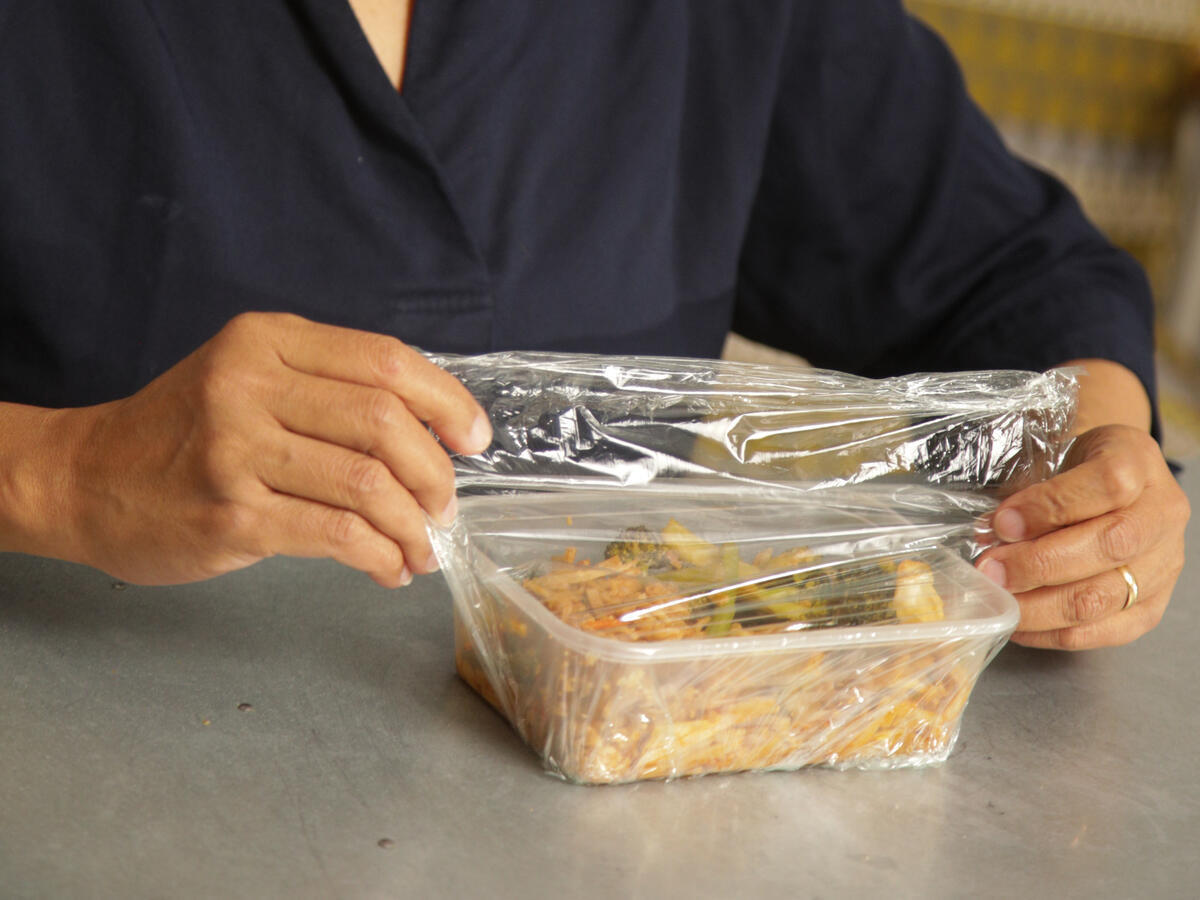
Plastic food packaging: the good, the bad, and the ugly
The research also showed that 1,396 food contact plastic chemicals have been found in humans, several of which are known to be hazardous to human health. At the same time, there are many chemicals for which no research into the long-term effects on human health exists.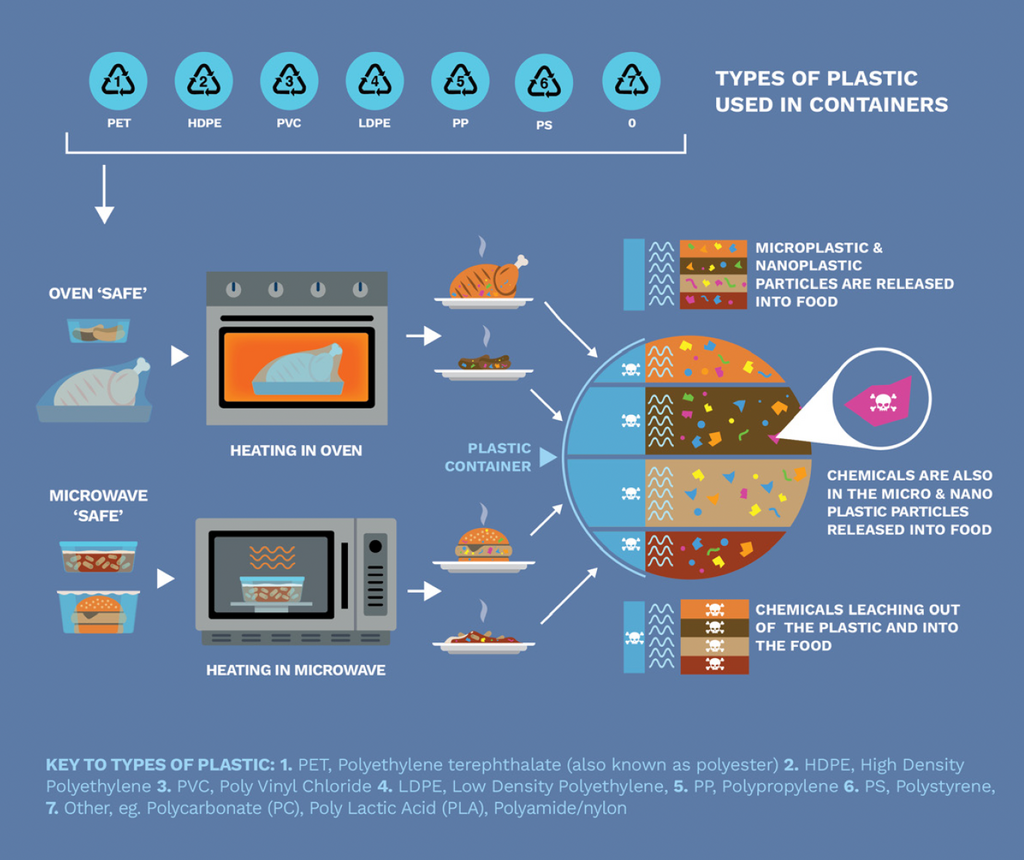
The known unknowns of plastic chemicals and microplastics
We’ve been here before: lessons from tobacco, asbestos and lead
Where to from here?
This means shifting the burden of proof away from consumers and everyone else to prove that a product is definitely harmful (e.g. it’s definitely this particular plastic that caused this particular problem), and onto the manufacturer to prove that their product is definitely safe. This is not a new idea, and plenty of examples of this exist already, such as the EU’s REACH regulation, which is centred around the idea of “no data, no market” – manufacturers are obligated to provide data demonstrating the safety of their product in order to be sold.
A better path forward
Policymakers & companies
Consumers
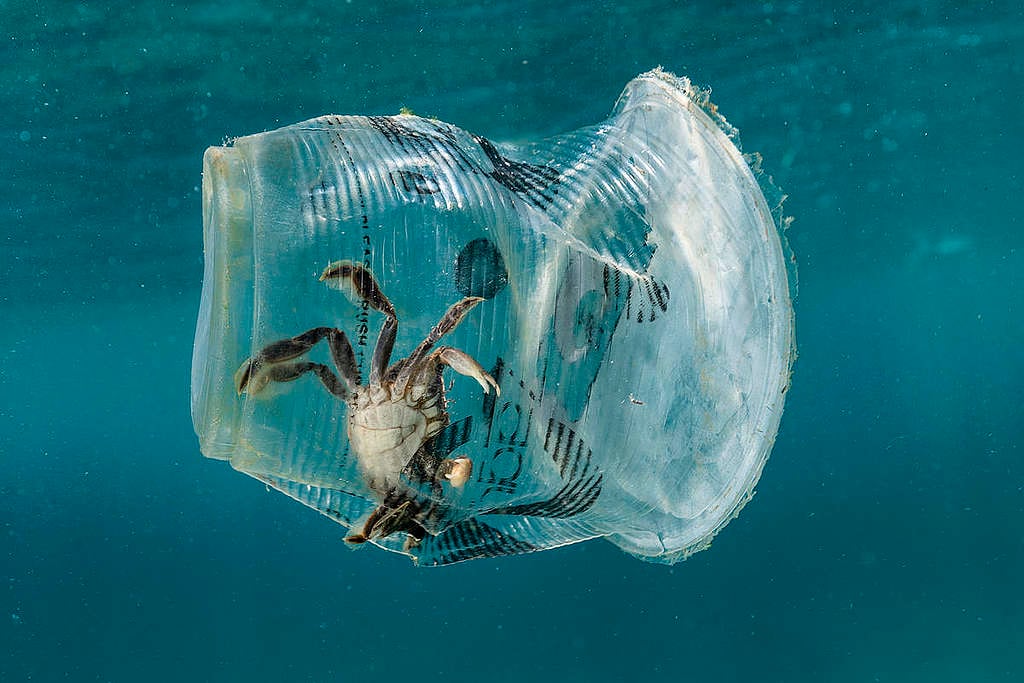
“Are We Cooked?”: New Greenpeace report warns of ready meals flooded with microplastics and toxic chemicals
Greenpeace International
Amsterdam – Heating plastic-packaged ready meals and takeaways in the microwave or oven can release hundreds of thousands of micro- and nanoplastic particles along with a cocktail of toxic chemicals directly into food, according to a new Greenpeace International analysis of peer-reviewed science. The report, Are We Cooked? The Hidden Health Risks of Plastic-Packaged Ready Meals, reviewed 24 recent scientific studies and finds that convenience food items marketed as “safe-to heat” are in fact potentially exposing millions of people to invisible contaminants every day. Graham Forbes, Global Plastics Campaign Lead from Greenpeace USA, said: “People think they’re making a harmless choice when they buy and heat a meal packaged in plastic. In reality, we are being exposed to a cocktail of microplastics and hazardous chemicals that should never be in or near our food. Governments have let the petrochemicals and plastics industries turn our kitchens into testing labs. This report shows that corporate claims of “microwave-safe” are no more than wishful thinking. ” Key findings are: Plastic-packaged ready meals are one of the fastest-growing segments of the global food system, worth nearly US$190 billion and rising sharply as households rely more on convenience food, according to a research done by Towards FnB. In 2024, production of ready meals amounted to a global volume of 71 million tonnes, averaging 12.6 kg per person, with the cost of a ready meal and revenue per capita also expected to increase, according to a market research published by Statista. International Energy Agency analysis also showed that plastic packaging accounts for about 36% of all plastics, with global plastic production set to more than double by 2050 from current levels. Regulators have failed to keep up. There is insufficient regulatory guidance around the world on microplastics released from food packaging, and labels such as “microwave safe” or “oven safe” provide what the report calls false reassurance to consumers. The report warns that the plastics crisis is following the same pattern seen with tobacco, asbestos and lead. While there are overwhelming scientific warning signs, it has been met with industry denial and regulatory delay. In the U.S. alone, the social cost of plastic across its lifecycle is estimated to be up to US$1.1 trillion per year, according to a report by Duke University. As governments negotiate the UN Global Plastics Treaty, Greenpeace is urging negotiators to act on the precautionary principle and end this uncontrolled and unregulated plastic and chemical contamination that threatens human health. “Are we being poisoned while trying to feed our families? The risk is clear, the stakes are high and the time to act is now. We cannot rely on misleading promises from corporations. Governments must act now by delivering a strong Global Plastics Treaty that protects human health and cuts plastic production at the source,” Forbes said. ENDS Photos can be accessed in the Greenpeace Media Library. Contacts: Angelica Carballo Pago, Global Plastics Campaign Media Lead, Greenpeace USA, +63 917 1124492, angelica.pago@greenpeace.org Greenpeace International Press Desk, +31 (0) 20 718 2470 (available 24 hours), pressdesk.int@greenpeace.org Texte intégral (762 mots)
🌱 Bon Pote
Actu-Environnement
Amis de la Terre
Aspas
Biodiversité-sous-nos-pieds
🌱 Bloom
Canopée
Décroissance (la)
Deep Green Resistance
Déroute des routes
Faîte et Racines
🌱 Fracas
F.N.E (AURA)
Greenpeace Fr
JNE
La Relève et la Peste
La Terre
Le Lierre
Le Sauvage
Low-Tech Mag.
Motus & Langue pendue
Mountain Wilderness
Negawatt
🌱 Observatoire de l'Anthropocène

 (@greenpeace)
(@greenpeace)